The Electronic Intifada 15 November 2023
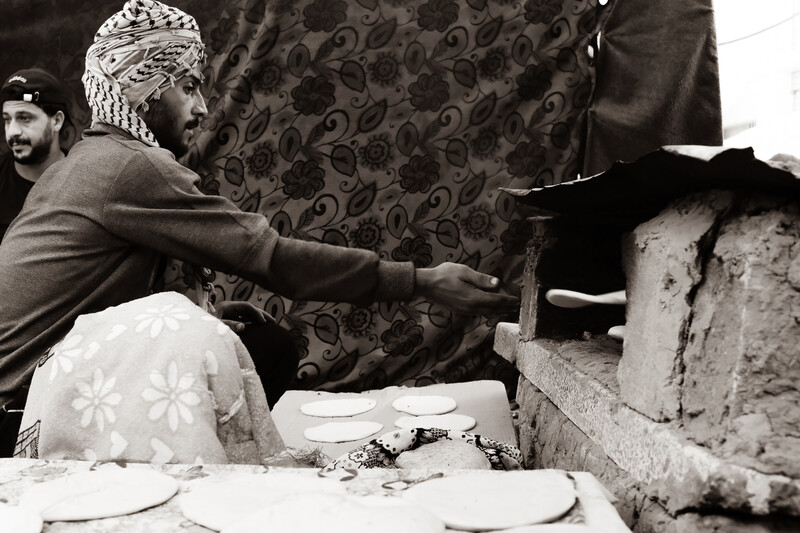
The makeshift clay oven that has become the main bakery at the Khan Younis camp, 8 November.
It feels like Gaza has been sent back to the Middle Ages.
There is no gas or electricity. Israel has cut off food and water supplies. The struggle for Gaza’s 2.3 million people is now simply to survive.
Besides water, finding flour to make bread is a challenge. And it is only the start. You have to find somewhere to bake it. Not easy, when everything is destroyed and most people are displaced.
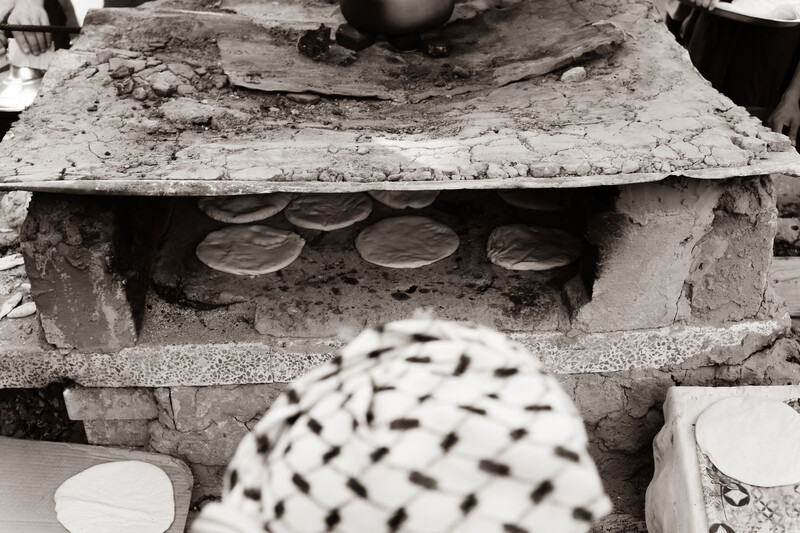
The makeshift clay oven that has become the main bakery at the Khan Younis camp, 8 November.
Some 1.7 million people have been forced to leave their homes for the supposedly safer areas of the south. Israel continues to bomb the south, and people huddle together at UN facilities and schools and anywhere there is a little space and some imaginary sense of security.
In the first few days of displacement, at one such camp for the displaced in Khan Younis, the people had not come to grips with the impending reality awaiting them. Bread was still available and plentiful, there were enough flour stores not to cause 4 am queues outside bakeries.
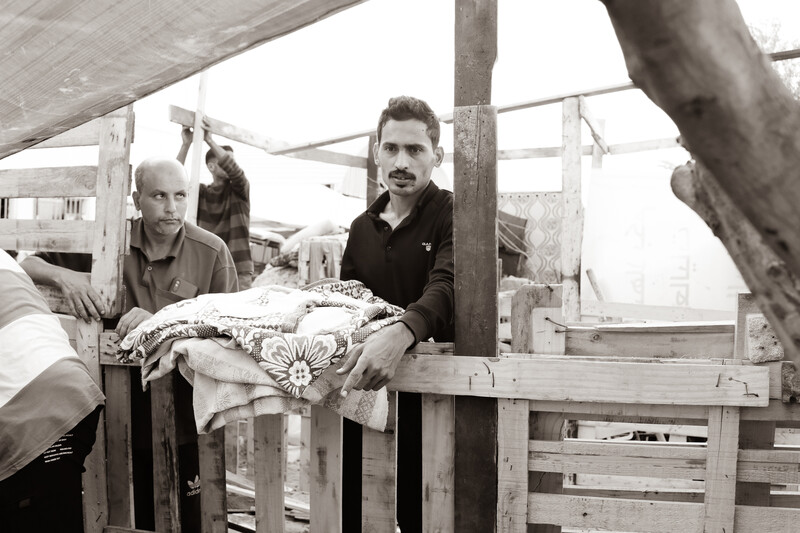
Man waits for his turn to bake, 8 November.
Then inevitable reality hit. Hungry stomachs began to growl.
With the complete border closures imposed by Israel, nothing comes in and nothing goes out. This tactic of collective punishment is more apparent now than ever, and is unmistakably exemplified in not only targeting the civilian population, but also in eliminating access to the most basic human necessities.
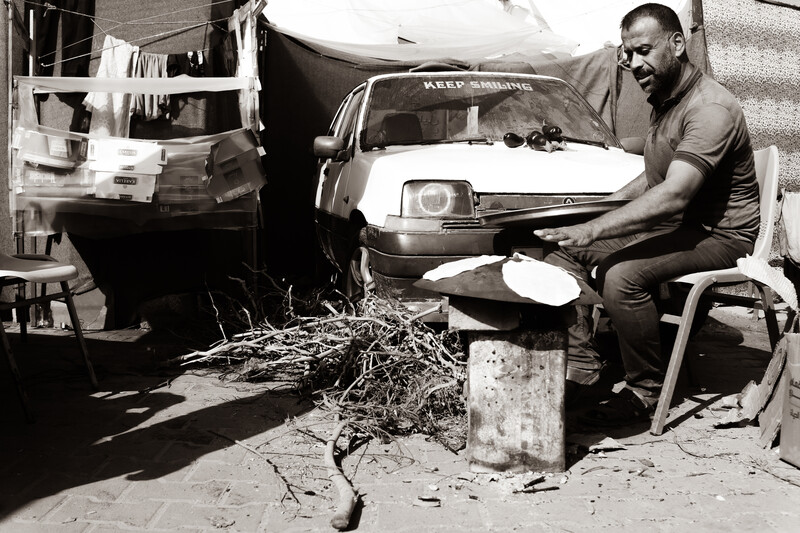
A man makes saj, or flatbread, on a makeshift fire, 9 November.
Here, people face the greatest of challenges. The biggest is finding a loaf of bread.
The price of a 25 kg bag of white flour is now 3 times what it was before the war. Gas is nearly 10 times more expensive.
Flour scarcity coupled with gas scarcity leaves people who are otherwise struggling to make sense of what has happened to them, focused on how to get the flour, and if they do, how to make something out of it.
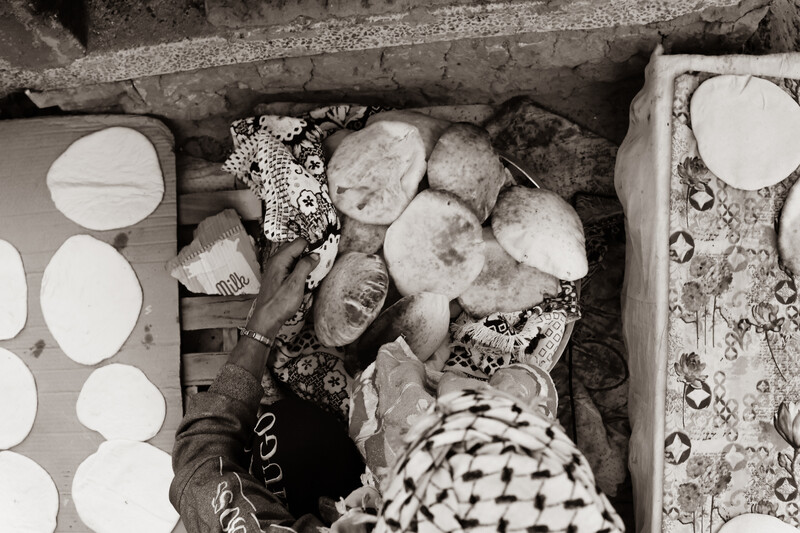
Bread ready after baking, 8 November.
At the Khan Younis camp, traditional solutions have arisen out of sheer necessity. Those with flour but unable to bake have found ways to do so thanks to the generosity of a single person at the camp.
Initially, the man, along with his family, managed to build a clay oven, intending to serve their needs.
As the days passed, people started asking if he could bake for them. They wanted bread, they wanted to eat. The man couldn’t sell any, as feeding his family was his first priority.
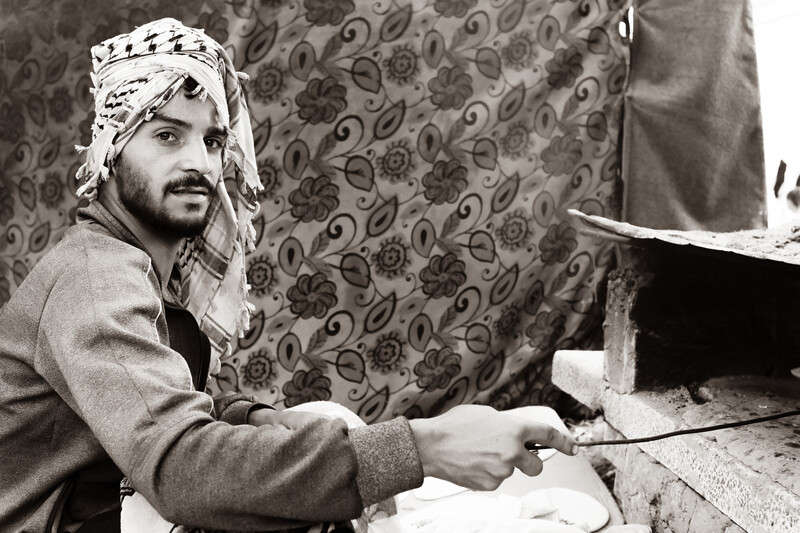
Man making bread at the Khan Younis camp, 8 November.
But the crowds kept getting larger, and demand rose. The man had no option but to serve the people now.
He then decided on becoming a solution to the problem. Every day, he would send his kid at sunrise to collect wood to keep the oven burning.
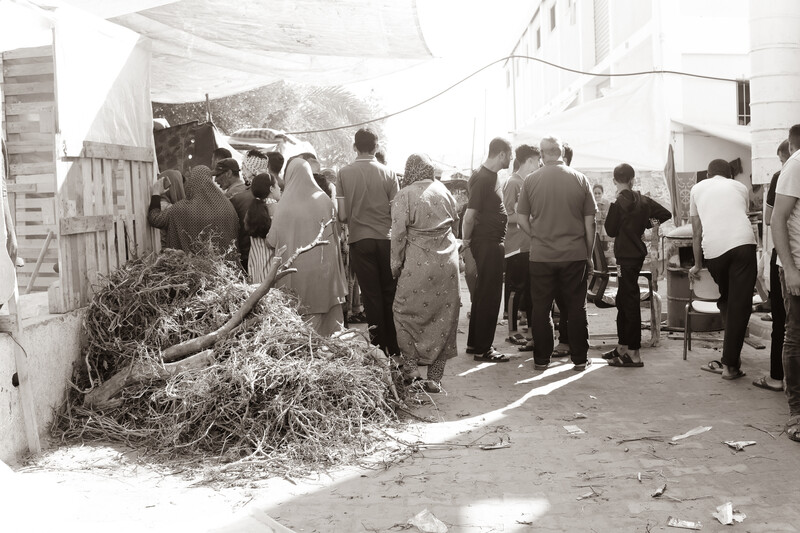
People line up for a turn at the oven, 9 November.
With booming demand, this little makeshift oven has turned into a business.
He charges 1 shekel for every five pieces of bread, 3 shekels to cook something else alongside. Bookings now come in a day in advance for people to take a turn.
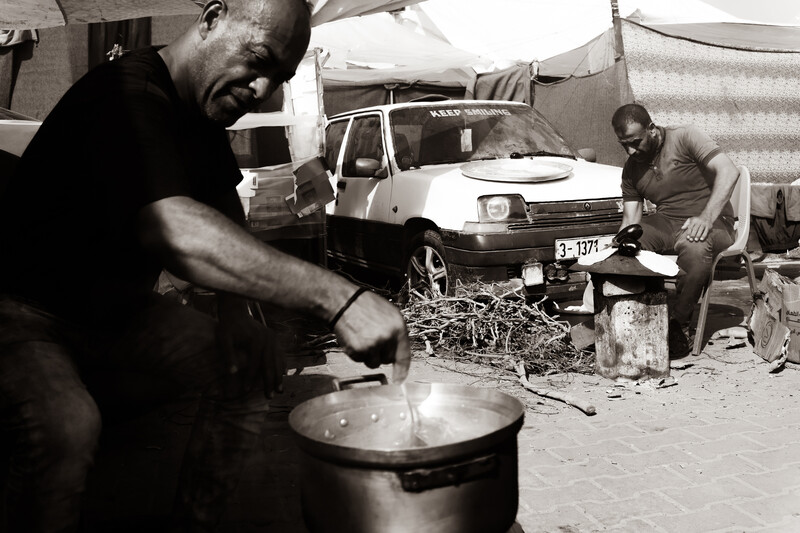
Cooking and making saj, 9 November.
Imagine. It is the 21st century, but Palestinians in Gaza now use radios for news, open fires to bake and cook, and donkey carts as transportation.
People don’t see themselves in mirrors anymore. They have forgotten the comfort of using a private toilet. The luxury of daily showers. The ability to turn a knob in the oven to cook whatever you want, or finding a loaf of bread at your convenience.
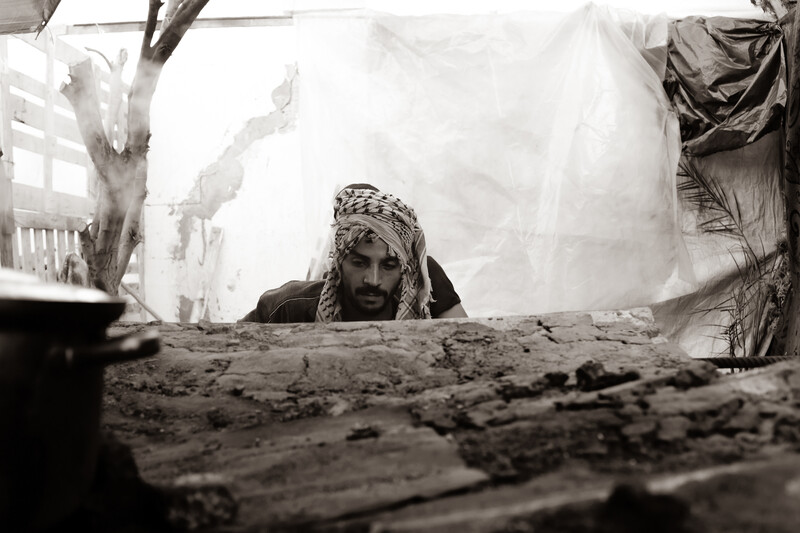
The makeshift clay oven that has become the main bakery at the Khan Younis camp, 8 November.
As if people need more inhumanity. Not only are they subjected to brutal bombardment and suffer daily the tragic loss of life, not only have they lost their homes and been displaced for over a month, they now have to constantly worry about how to get bread tomorrow.
Life at camp has become a canvas of suffering. A mural of surviving. The greatest painting of Palestinian resilience.
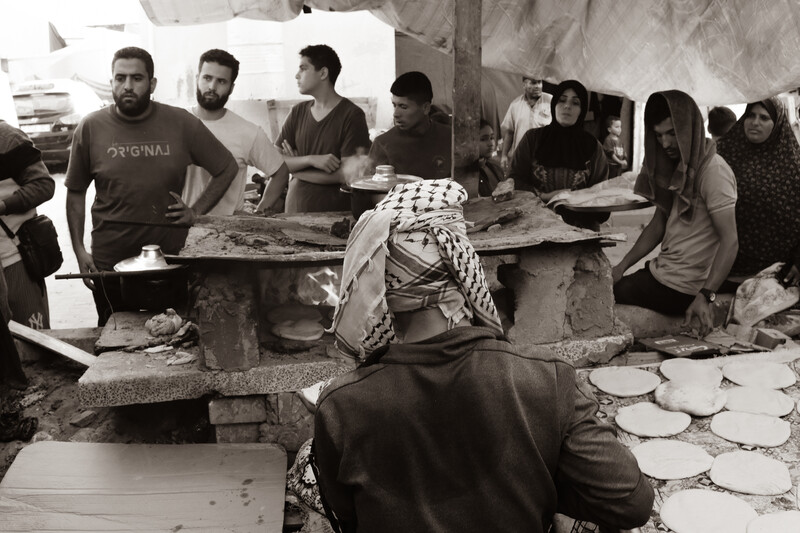
People wait for bread, 8 November.
Mahmoud Nasser is a Gaza-based photographer and writer.
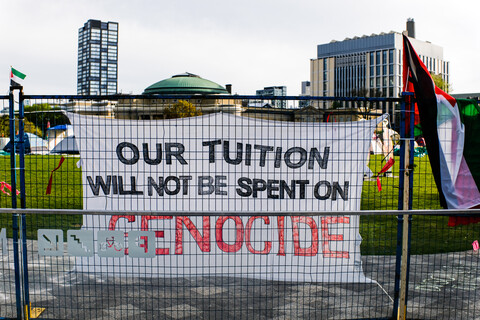





Comments
Wonderful photographs
Permalink Brian replied on
Thank you, Mahmoud, for sharing with us the day-to-day life in Khan Younis. And your photos are very beautiful!